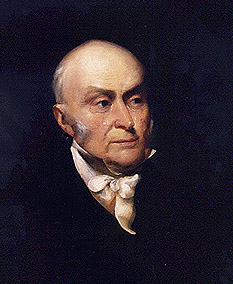Once you understand your work permission, have carefully developed a resume and practiced your cover letter writing and interviewing skills, you are ready to engage in the job search – right? But, how do you find jobs not restricted to U.S. Citizens or Permanent Residents? Career Services is here to help!
by Jamie Grant
Are you an F-1 (international) student, working diligently towards your degree, and find yourself, like many other students, thinking about internships, or your life after Penn? Perhaps you have already starting “job searching” (aka clicking through PennLink) and are dismayed by the number of job postings that clearly state applications are “limited to U.S. Citizens or Permanent Residents.” You are confident that you have strong skills, motivation, and could be an excellent worker, if only given the opportunity. What can you do to be considered, interviewed and hired?
Let’s consider what it really means to be “F-1.” An F-1 is a student, non-immigrant visa – just one of many visa types offered by the U.S. Government. Your F-1 visa was offered to you so that you may complete a degree in the U.S. Your status as an F-1 student requires that you understand the exact rules and restrictions as to what you can and cannot do while in the U.S. You most likely remember signing an official-looking legal document that required you to state that you will return to your home country after graduation. So, how can you possibly stay in the U.S. to work?
While it’s certainly not a secret, many F-1 students that I’ve met in my years of career counseling don’t realize that the F-1 visa has significant training benefits attached to it, otherwise known as “work permissions.” If you don’t know what terms like pre- or post-completion OPT, the STEM extension, or April 1st might mean to you and your career – keep reading!
To fully understand your potential ability to be hired by a U.S. organization, you have several great learning resources. Your first stop should be to visit with your advisor for International Student and Scholar Services (ISSS) in the International Programs office here on Penn’s campus, or to spend some considerable time studying the ISSS website at http://global.upenn.edu/isss. Their webpage on F-1 Student Information – http://global.upenn.edu/isss/f1 – has details on just about everything you need to know about your visa and work/training options. You should become very familiar with your work permissions if you’re serious about applying what you’ve learned and working legally in the U.S. It is more than likely that you will need be able to clearly explain your permission, either in writing or during an interview, to your potential employer.
Once you understand your work permission, have carefully developed a resume and practiced your cover letter writing and interviewing skills, you are ready to engage in the job search – right? But, how do you find jobs not restricted to U.S. Citizens or Permanent Residents? Career Services is here to help!
There are several key resources and events targeted to F-1 job seekers brought to you by the Career Services office. While you might find your search a bit more challenging than searching and submitting applications through PennLink, as a Penn student you have access to a database of U.S. companies with a history of hiring international candidates – like you – called GoinGlobal.  By researching in GoinGlobal, and cross-referencing your findings with PennLink, company career websites and other job posting resources, you are more than likely to find opportunities in which you have great interest, and for which you may very well be a top candidate.
By researching in GoinGlobal, and cross-referencing your findings with PennLink, company career websites and other job posting resources, you are more than likely to find opportunities in which you have great interest, and for which you may very well be a top candidate.
In addition, each year Career Services hosts a presentation by representatives from the legal firm McCandlish Holton, designed to help you understand all the rules, regulations, requirements, and best strategies to successfully manage your search and career. http://www.lawmh.com/practice_areas/immigration.htm. Handouts from their program held throughout the years are available in Career Services for your review.
Other resources maintained by Career Services and accessible through the Career Services Online Library include The H-1B Online Job Databases for Foreign Students/Postdocs (fairly self-explanatory), and Uniworld. 
Uniworld offers two online directories – one of American organizations with International subsidiaries and one of International organizations with American subsidiaries. This could be especially helpful, much like using GoinGlobal, in guiding you to identify organizations more amenable to hiring international candidates. In addition, should you not be able to secure a job in the U.S. after graduation, using Uniworld will help you to identify American companies operating in your country of origin – companies that may highly value the educational and cultural experience you have gained by studying in the U.S. and may perhaps consider you for a U.S. post in future years.
You can easily access the resources and directories mentioned here through the Career Services Library On Line Subscription Database: http://www.vpul.upenn.edu/careerservices/library/ – look for “Online Subscriptions…”
Also, consider types of employing organizations that have greater capacity to hire foreign graduates, such as universities, non-profit organizations affiliated with universities (such as research facilities or hospitals), non-profit research organizations engaged primarily in basic or applied research, and governmental research organizations. These types of organizations are not subject to the same restrictions on the numbers of foreign graduates for whom they can obtain authorization to hire with H1-B visas, and as such are some of the more common employers of F-1 students.
 ..who is the fairest one of all? If you’re familiar with the children’s story of Snow White, you know this is a desperate plea from the Evil Queen to her enchanted mirror, so that she may know with certainty if Snow White has perished at the hands of the Evil Queen’s minion, making her the “fairest in the land.” Even Harry Potter had the Mirror of Erised, in which he saw his “living” parents.
..who is the fairest one of all? If you’re familiar with the children’s story of Snow White, you know this is a desperate plea from the Evil Queen to her enchanted mirror, so that she may know with certainty if Snow White has perished at the hands of the Evil Queen’s minion, making her the “fairest in the land.” Even Harry Potter had the Mirror of Erised, in which he saw his “living” parents.








